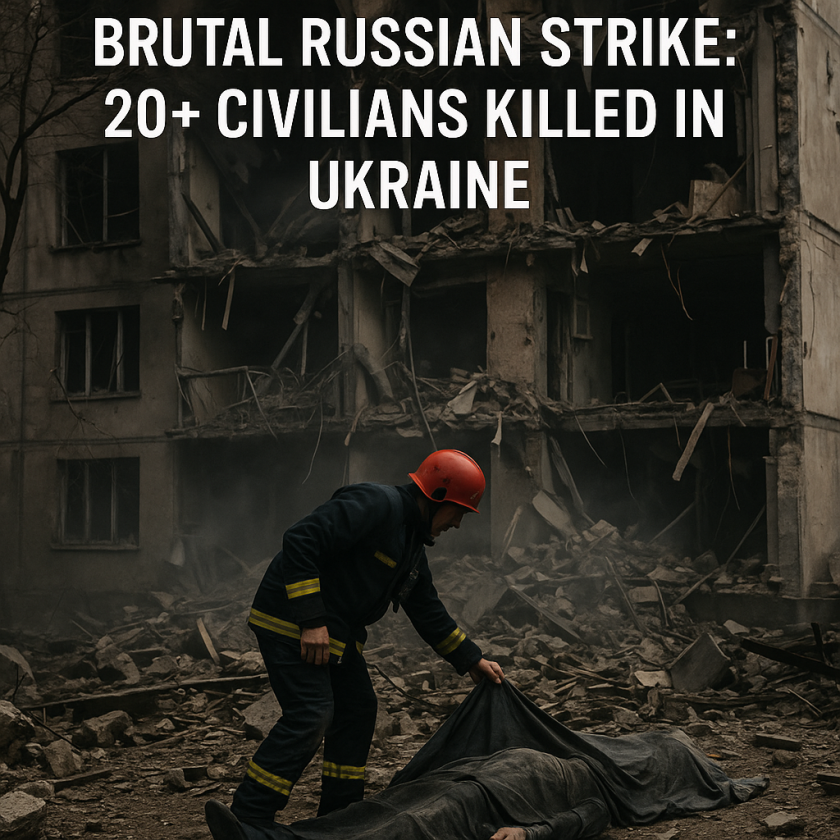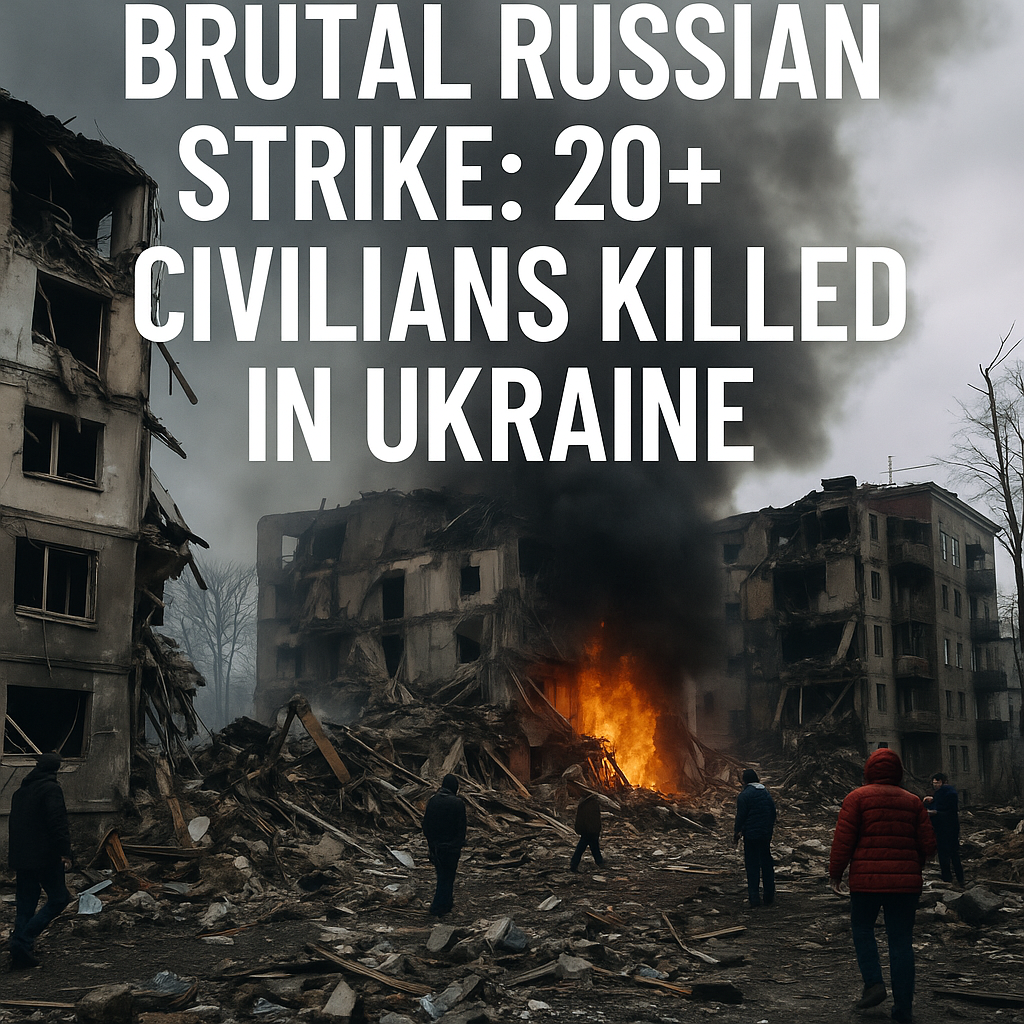Brutal Russian Strike: 20+ Civilians Killed in Ukraine
Understanding the Impact of the Brutal Russian Strike in Ukraine
The brutal Russian strike that recently resulted in the deaths of over 20 civilians in Ukraine has ignited profound discussions about the ongoing conflict and its toll on innocent lives. As the war persists, it becomes increasingly critical to examine the complexities surrounding this tragic incident and what it signifies for the nation and its people.
The Incident: A Tragic Loss of Life

Reports confirm that the attack occurred in the Donetsk region, an area that has seen considerable strife amid the ongoing war. President Volodymyr Zelenskyy voiced his outrage, emphasizing the cruelty of the attack on civilians. “Another brutal strike against civilians,” he stated, calling for global condemnation of what appear to be deliberate actions against non-combatants.
Eyewitness accounts painted a harrowing picture. Residents reported hearing loud blasts, and many expressed fear about ongoing hostilities. Local authorities indicated that the strike targeted a residential area, detonating near homes and leading to a disastrous loss of life. Such incidents raise questions about the rules of engagement and the dire humanitarian situation unfolding in Ukraine.
Diverging Perspectives on Military Conduct
The responses to this tragedy differ markedly based on political and media affiliations, illustrating the complexity of current narratives surrounding the conflict.
Russia’s Justification and Military Strategy
From the Russian perspective, statements from state authorities claimed the strike was a necessary military action aimed at weakening the capabilities of Ukrainian forces. In their narrative, collateral damage to civilians is often minimized, framing military operations as essential to safeguarding national interests.
However, international observers and human rights organizations have critiqued these justifications. They argue that reconnaissance must be conducted to preserve civilian life, emphasizing that attacks on populated areas constitute war crimes under international law.
International Reactions and Humanitarian Concerns
Global reactions have reflected a blend of horror and calls for action. Countries and organizations worldwide condemned the strike, reaffirming their support for Ukraine. A coordinated response has been suggested, ranging from sanctions to humanitarian aid, to address the devastating situation faced by civilians.
Furthermore, humanitarian organizations are spotlighting the rising number of civilian casualties in Ukraine, calling for immediate protection measures and increased aid to those affected. The United Nations has also intervened, urging all parties to adhere to international obligations regarding civilians, accentuating the need for accountability.
The Call for Accountability: A Complex Landscape
Given the multitude of perspectives, one cannot overlook the complexity of holding parties accountable in a war zone. With reports of casualties and destruction emerging almost daily, the necessity for a robust international legal framework becomes apparent.
The Ambiguous Path Forward
As the conflict continues, uncertainties loom large. The path to accountability may be hindered by geopolitical interests and the dynamics of power. Analysts suggest that the absence of a clearly defined accountability system may embolden further brutal strikes, perpetuating a cycle of violence that exacerbates the humanitarian crisis.
A Need for Dialogue
Many experts argue that beyond immediate military tactics, fostering dialogue and negotiating peaceful resolutions is essential. The ongoing violence tends to overshadow the need for diplomatic engagements, which might lead to de-escalation.
Humanitarian Efforts amidst Conflict
On the ground, humanitarian efforts face immense challenges. With destruction rampant, the availability of aid is critical for the survival of countless civilians. Various NGOs are working tirelessly to address food shortages, medical aid, and psychological support for those traumatized by the ongoing conflict.
Conclusion: The Imperative of Civilian Protection
The brutal Russian strike that left over 20 civilians dead in Ukraine serves as a heart-wrenching reminder of the war’s devastating impact. As the international community grapples with responses, the narrative must pivot toward protecting innocent lives and advocating for accountability.
The diverse viewpoints underscore the challenges in navigating military, humanitarian, and diplomatic domains. It emphasizes the urgent need for both a compassionate approach to immediate humanitarian challenges and a long-term commitment to peacebuilding efforts. The complexity of the situation requires all parties involved to ensure that civilians become a focal point in the discourse surrounding conflict and resolution.






































